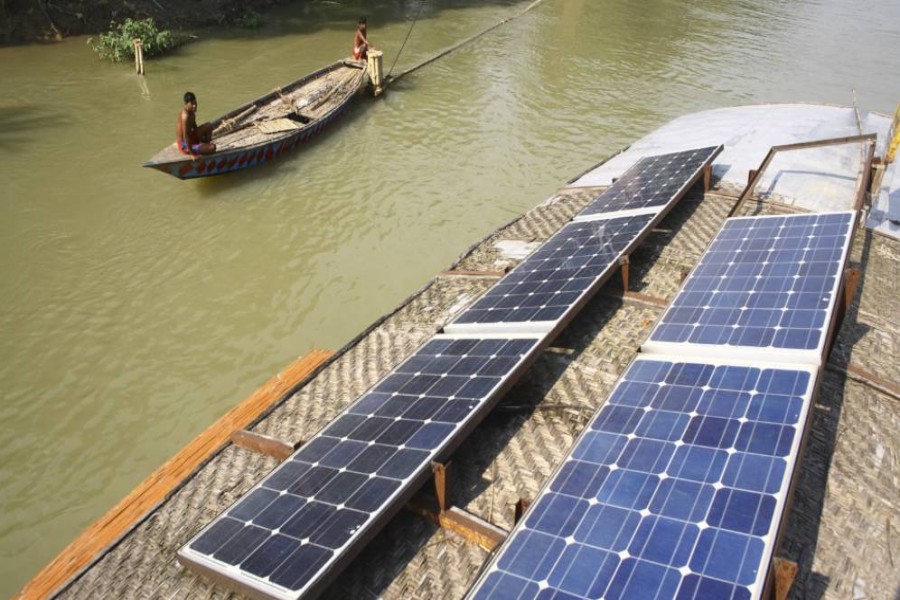
Published :
Updated :

Reportedly the government is going to adjust the bulk power tariff rates today (Thursday). The Bangladesh Power Development Board (BPDB) has sought to raise the tariff rates by 66 per cent. But the apex chamber body of the country and a rights group have argued that the rates should be kept unchanged.
If the bulk power tariffs are raised, the electricity-distribution companies will also need to raise their rates as their purchase of power from the BPDB will be costlier. If the distributors raise their rates, that will leave its impact on the end-users, pushing up the production cost of goods. Already the people are reeling from the pressure of inflation, which stood at 9.1 per cent in September last. So another bulk power tariff hike will lead to another dose of inflationary pressure.
But there is no alternative to power tariff hike, as the Bangladesh Energy Regulatory Commission (BERC) raised gas tariffs by 22.78 per cent on average with effect from June 2022, pushing up the electricity generation cost. Out of 152 power plants as of August 31 2022, at present 31 are reportedly lying inoperative-20 are undergoing maintenance work while eight gas-fired and three diesel-run power plants are shut due to fuel crises, creating a power generation gap of 2000mw.
Is there any other alternative? A lot of write-ups have been written by experts in this field. They have suggested that renewable energy, especially solar energy, can be a very good alternative. But it seems that we have chosen to go slow, when it comes to renewable energy. So far our power generation from solar energy has not even crossed the 1,000mw mark. Why is this? We are turning a blind eye to this fact, though Europe and even our big neighbour India are taking giant strides in producing renewable energy. Bangladesh is a tropical country gifted with free sunlight. We can use this bounty of nature very easily. We just need to buy solar panels, install them and then start to use the electricity generated.
But the problem is the people are not aware that much about the solar power. During a recent visit to a rural area this scribe found that many households installed solar panels on their rooftops. But within a very short time those turned inoperative, maybe, because of the use of cheap and low-quality equipment. Then they were not repairing the panels because of the additional cost involved. The government should come forward to help them. The government could finance the solar panel installation, allowing the households to repay the money in easy instalments. At the same time the quality of the panels also should be ensured. It would not be difficult for the households to repay the money, as they are paying power bills every month.
It is a good sign that big companies are installing solar panels on a large scale for running their factories. If all companies turn to solar power and all households have their own solar panels, the demand for power from the national grid will come down sharply. Switching to solar power will yield two benefits. The import of fossil fuels will go down. It will save our much-needed foreign exchange reserve that could be used for other purposes. On the other hand, the emissions from fossil fuels will also decline.


 For all latest news, follow The Financial Express Google News channel.
For all latest news, follow The Financial Express Google News channel.